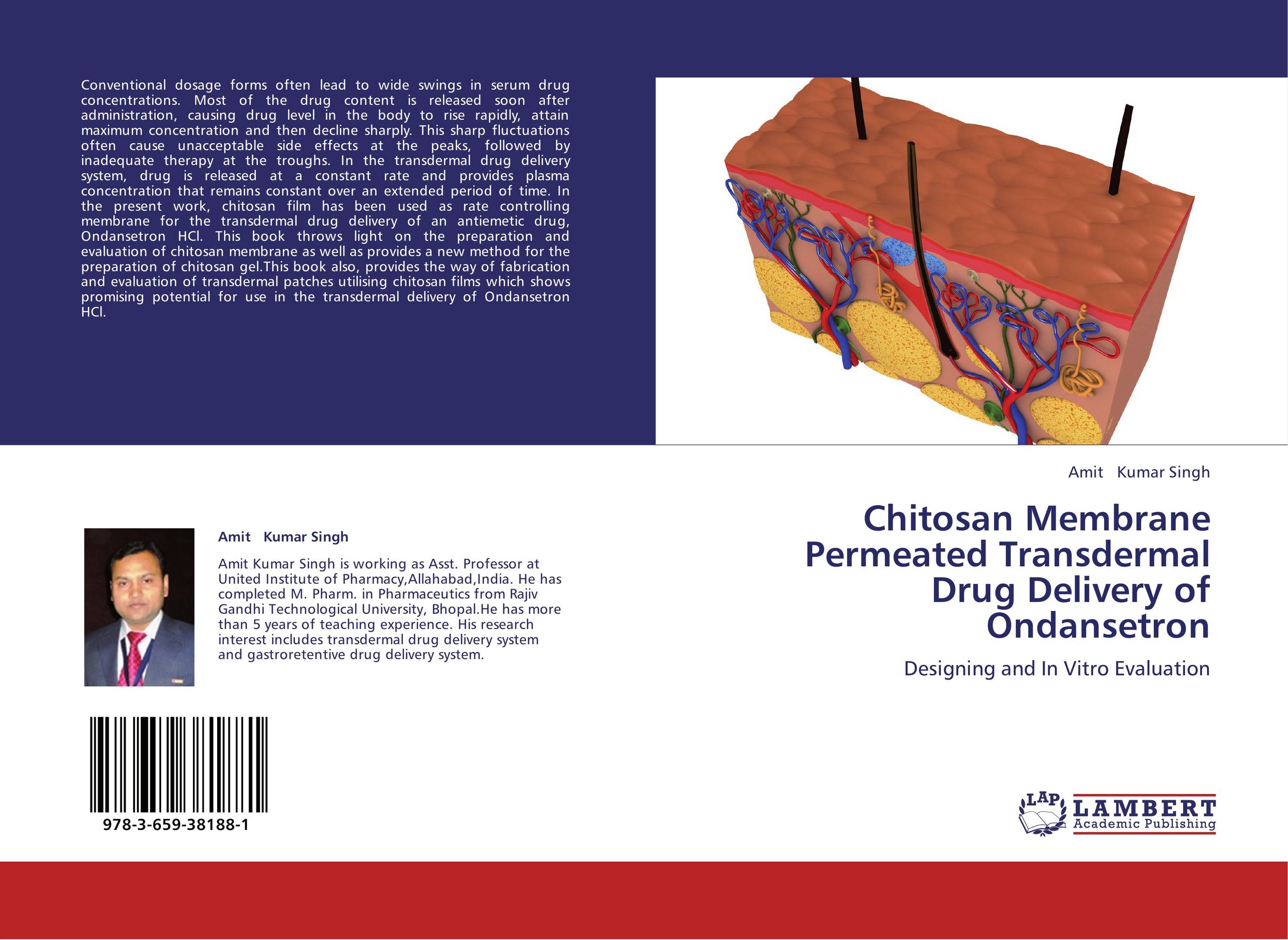| Поиск по каталогу |
|
(строгое соответствие)
|
- Профессиональная
- Научно-популярная
- Художественная
- Публицистика
- Детская
- Искусство
- Хобби, семья, дом
- Спорт
- Путеводители
- Блокноты, тетради, открытки
Chitosan Membrane Permeated Transdermal Drug Delivery of Ondansetron. Designing and In Vitro Evaluation

В наличии
| Местонахождение: Алматы | Состояние экземпляра: новый |

Бумажная
версия
версия
Автор: Amit Kumar Singh
ISBN: 9783659381881
Год издания: 2013
Формат книги: 60×90/16 (145×215 мм)
Количество страниц: 92
Издательство: LAP LAMBERT Academic Publishing
Цена: 31605 тг
Положить в корзину
| Способы доставки в город Алматы * комплектация (срок до отгрузки) не более 2 рабочих дней |
| Самовывоз из города Алматы (пункты самовывоза партнёра CDEK) |
| Курьерская доставка CDEK из города Москва |
| Доставка Почтой России из города Москва |
Аннотация: Conventional dosage forms often lead to wide swings in serum drug concentrations. Most of the drug content is released soon after administration, causing drug level in the body to rise rapidly, attain maximum concentration and then decline sharply. This sharp fluctuations often cause unacceptable side effects at the peaks, followed by inadequate therapy at the troughs. In the transdermal drug delivery system, drug is released at a constant rate and provides plasma concentration that remains constant over an extended period of time. In the present work, chitosan film has been used as rate controlling membrane for the transdermal drug delivery of an antiemetic drug, Ondansetron HCl. This book throws light on the preparation and evaluation of chitosan membrane as well as provides a new method for the preparation of chitosan gel.This book also, provides the way of fabrication and evaluation of transdermal patches utilising chitosan films which shows promising potential for use in the transdermal delivery of Ondansetron HCl.
Ключевые слова: chitosan, Transdermal drug delivery system, chitosan membrane, chitosan gel, ondansetron hydrochloride, franz diffusion cell, egg membrane, in vitro permeation study



